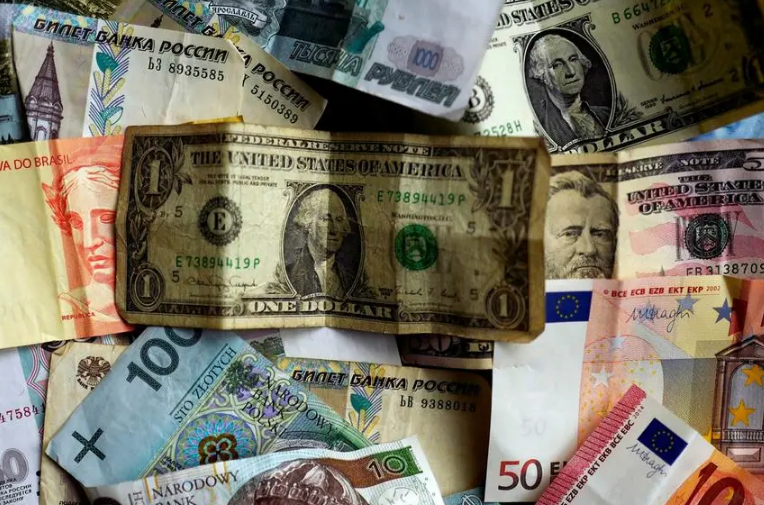Donald Trump’s recent victory in the US presidential election has positive implications for the dollar and the UAE dirham, which is linked to the US currency, as well as local stock markets.
Following the election results, the dollar surged nearly two percent, reaching a four-month high and marking its largest single-day increase since 2020. As a result, the UAE dirham also appreciated against major currencies like the euro, Japanese yen, Mexican peso, Indian rupee, and Philippine peso, among others.
Republican candidate Trump defeated his Democratic opponent, Vice President Kamala Harris, in a race that polls suggested would be very close.
George Pavel, the general manager at Naga.com Middle East, noted that Trump’s presidency could strengthen the dirham, especially against emerging market currencies, since the Emirati currency is pegged to the dollar. “The recent rise of the dollar due to political developments has already benefited dollar-pegged currencies like the UAE dirham.
While initial market reactions may show some volatility, the dirham is expected to closely follow the dollar’s movements. Key factors to watch include Trump’s trade policies and how they affect global currency markets,” said Pavel.
After Trump’s victory announcement, several currencies, including the Indian rupee, Mexican peso, Japanese yen, and Philippine peso, fell against both the US dollar and the UAE dirham.
Wael Makarem, a financial markets strategist at Exness, explained that Trump’s presidency is likely to bolster the dirham against major currencies like the euro and those of emerging markets. “The dollar’s rise after Trump’s win indicates this trend. His fiscal policies and potential interest rate changes could further support the dollar’s strength, which would also enhance the dirham’s value.”
Vijay Valecha, chief investment officer at Century Financial, anticipates the dirham will strengthen alongside the dollar. “We’re seeing broad dollar strength against most global currencies, particularly affecting the Mexican peso, Japanese yen, and euro.
Other major currencies, like the Swiss franc and British pound, also dropped over 1% in response. The dollar global index has reached a 2024 high, but it remains to be seen if this trend will continue beyond the initial election reactions,” said Damian Hitchen, CEO of Mena and Asia-Pacific at Saxo Bank.
UAE stock markets also experienced gains following Trump’s victory, aligning with the upward trend seen in US stock markets, with both the Dubai Financial Market and Abu Dhabi Securities rising by over 0.4%.
Stock Market Reactions
“The initial market reactions to Trump’s win seem positive for UAE equities. The Dubai and Abu Dhabi markets have shown steady performance, supported by strong economic fundamentals in the region. During Trump’s previous presidency, UAE-US economic relations were robust, and market sentiment indicates that investors expect favorable business ties to continue,” said Wael Makarem.
Hitchen noted that global equity markets have had mixed responses to the US election results so far. “Trump is generally seen as a positive for equity markets, especially for US stocks due to his ‘America First’ approach,” he said.
Echoing this sentiment, George Pavel predicted that UAE investors will likely view Trump’s victory favorably, given his history of supportive policies toward Gulf allies and a focus on regional stability.
“Trump’s previous administration fostered positive relations in the region. However, some investors may initially take a cautious approach, waiting to see his specific policies regarding the Middle East before making significant investment changes,” he said.
UAE-US Trade Opportunities
Vijay Valecha from Century Financial believes that UAE stock markets will continue to perform well under Trump’s leadership. “Trump’s ‘America First’ policy could lead to an isolationist foreign stance and may trigger trade tensions with countries like China. However, this is unlikely to negatively impact UAE markets, as the country is seen as a safe haven for investors due to its stable, business-friendly environment,” he stated.
“The UAE has always maintained a beneficial trade relationship with the US. Its adaptable foreign policy allows it to handle changes in US leadership smoothly. Furthermore, strong long-term fundamentals and new listings are attracting both local and foreign investors. While Trump may advocate for a weaker dollar, his policies could inadvertently revive inflation, which would strengthen the dollar. A stronger dollar is likely to draw more investments into the UAE, boosting local markets. If inflation rises, interest rates in both the US and UAE may remain high, benefiting UAE banks and the financial sector,” he added.
George Pavel remarked that Trump’s win could create new opportunities, but caution is necessary. “His previous term indicated positive engagement with Gulf countries, but global conditions have shifted significantly. Investors should await clear policy directions before making significant decisions, especially regarding trade and regional security. The UAE’s economic diversification provides some protection, but uncertainties in global trade require a careful approach,” he said.
Makarem of Exness concluded that Trump’s return signals a potentially positive shift for UAE-US relations, particularly in trade and investment. “Based on his track record, we can expect positive momentum in business deals and defense cooperation. The UAE markets should benefit from this familiar environment, given Trump’s understanding of Gulf dynamics and preference for stable regional relationships.”





